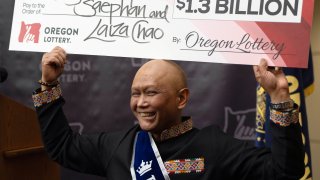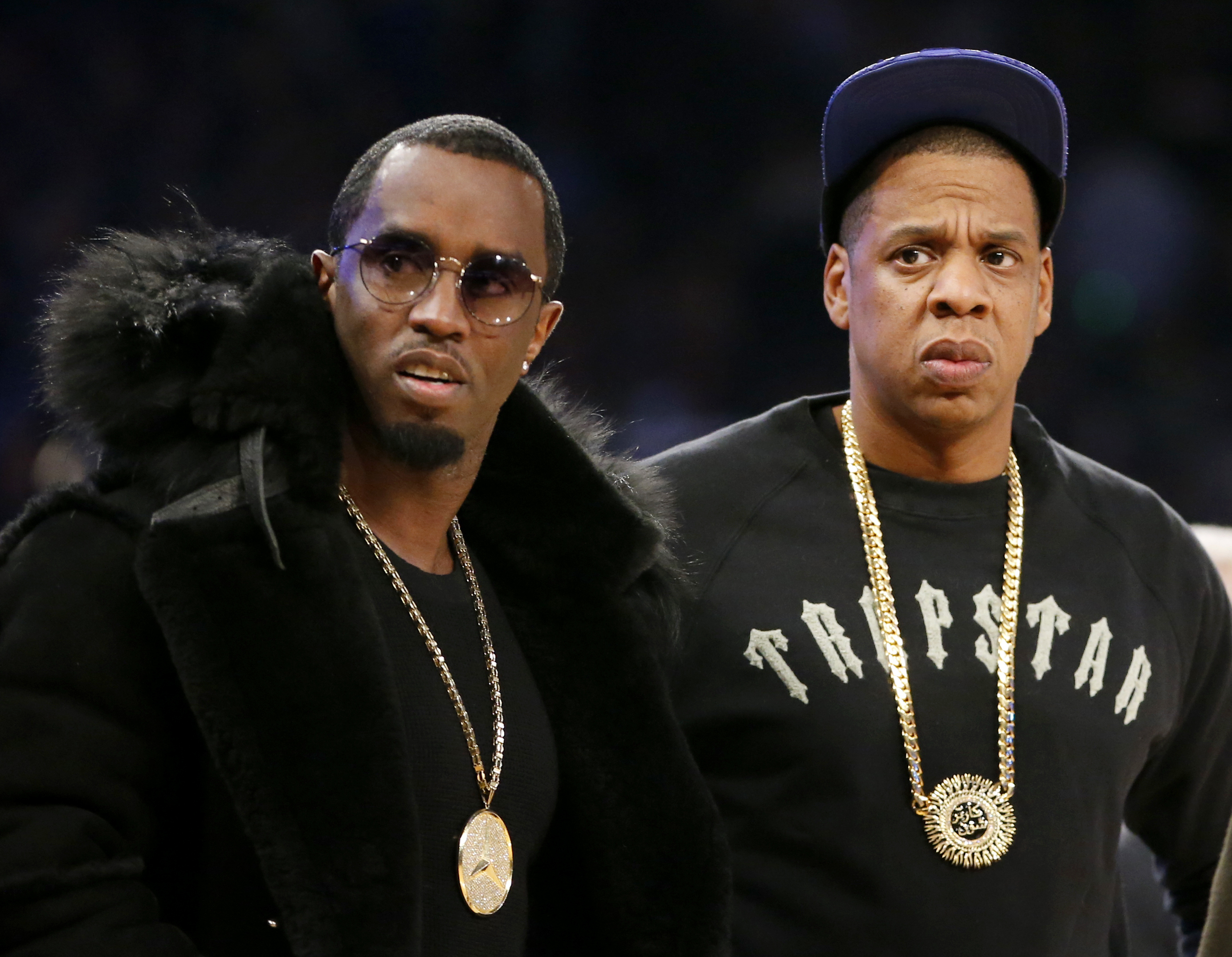
Cheng “Charlie” Saephan holds a check above his head after speaking during a news conference where it was revealed that he was one of the winners of the $1.3 billion Powerball jackpot at the Oregon Lottery headquarters on Monday, April 29, 2024, in Salem, Ore.
One of the winners of a $1.3 billion Powerball jackpot last month is an immigrant from Laos who has had cancer for eight years and had his latest chemotherapy treatment last week.
Cheng “Charlie” Saephan, 46, of Portland, told a news conference held by the Oregon Lottery on Monday that he and his 37-year-old wife, Duanpen, would split the prize evenly with a friend. Laiza Chao, 55, of the Portland suburb of Milwaukie, had chipped in $100 to buy a batch of tickets with them. They are taking a lump sum payment, $422 million after taxes.
Watch NBC6 free wherever you are
>“I will be able to provide for my family and my health,” he said, adding that he'd “find a good doctor for myself.”
Saephan, who has two young children, said that as a cancer patient, he wondered, “How am I going to have time to spend all of this money? How long will I live?”
Get local news you need to know to start your day with NBC 6's News Headlines newsletter.
>After they bought the shared tickets, Chao sent a photo of the tickets to Saephan and said, “We’re billionaires.” It was a joke before the actual drawing, he said, but the next day it came true.
Saephan said he was born in Laos and moved to Thailand in 1987, before immigrating to the U.S. in 1994. He wore a sash at the news conference identifying himself as Iu Mien, a southeast Asian ethnic group with roots in southern China. Many Iu Mein were subsistence farmers and assisted American forces during the Vietnam war; after the conflict, thousands of Iu Mien families fled to Thailand to avoid retribution and eventually settled in the U.S., especially along the West Coast.
Saephan graduated from high school in 1996 and has lived in Portland for 30 years. He worked as a machinist for an aerospace company.
U.S. & World
In the weeks leading up to the drawing, he wrote out numbers for the game on a piece of paper and slept with it under his pillow, he said. He prayed that he would win, saying, “I need some help — I don't want to die yet unless I have done something for my family first.”
The winning Powerball ticket was sold in early April at a Plaid Pantry convenience store in Portland, ending a winless streak that had stretched more than three months. The Oregon Lottery said it had to go through a security and vetting process before announcing the identity of the person who came forward to claim the prize.
Under Oregon law, with few exceptions, lottery players cannot remain anonymous. Winners have a year to claim the top prize.
The jackpot had a cash value of $621 million before taxes if the winner chose to take a lump sum rather than an annuity paid over 30 years, with an immediate payout followed by 29 annual installments. The prize is subject to federal taxes and state taxes in Oregon.
The $1.3 billion prize is the fourth largest Powerball jackpot in history, and the eighth largest among U.S. jackpot games, according to the Oregon Lottery.
The biggest U.S. lottery jackpot won was $2.04 billion in California in 2022.



